Climate change is now a reality and, for those most affected by it, it is often experienced as a change in the most basic commodity: water. Drawing on the insights of farmers and local communities, this session examines the role of forests in regulating the water cycle. And there are new, recent insights: new research suggests that vegetation plays a critical role in the frequency and intensity of rainfall.
This discussion forum will explore the implications on the many areas affected by these effects — land restoration, water management and climate change adaptation — toward an integrated approach for land/water and climate for the SDGs.
Organized by the CGIAR Research Program on Forests, Trees and Agroforestry (FTA) and International Union of Forest Research Organizations (IUFRO), this event will shed new light on the role of forests and trees in the climate debate, building on an online symposium held in May 2017 and on a scientific review paper on the relationship between forests and water titled Trees, forests and water: Cool insights for a hot world.
It will also discuss preliminary highlights of the current Global Forest Expert Panel (GFEP) on Forests and Water, which is expected to issue a policy relevant global assessment report in July 2018.
The forum will focus on the relevance of this science for policies and implementation efforts related to climate change, land restoration, landscape management and food security and, thus, will aim to contribute to a new agenda for coordinated science-policy interaction.
Find out more about FTA’s involvement across the Global Landscapes Forum at the FTA at GLF webpage.
Key objectives
- Displaying the latest scientific findings on rainfall recycling and climate regulation in relation to forests and tree cover
- Exploring the implications of these new scientific insights on climate, land, water and related policies and actions
- Sketching a new agenda on water/land and climate, for coordinated science-to-policy linkages, from cross-cutting policy integration to implementation on the ground, and triggering interest for institutional and donors support
Agenda
| Opening by: | |
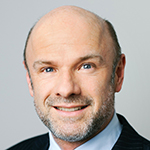 |
Alexander Buck
Executive Director of the International Union of Forest Research Organizations (IUFRO) Alexander Buck is the Executive Director of the International Union of Forest Research Organizations (IUFRO), a global network for science collaboration uniting over 15,000 scientists in more than 600 member organizations in 125 countries. He studied forestry and law and is an expert on international forest, environment and resource policy. Alexander has 20 years of experience in working at the science-policy interface. He has been instrumental in establishing the Collaborative Partnership on Forests’ Global Forest Expert Panel (GFEP), an initiative which he coordinated until 2010 when he was appointed to his current position. Alexander is a member of the advisory boards of various forest-related international initiatives, including the Program of Forests (PROFOR) hosted by the World Bank and Yale University’s Governance, Environment and Markets (GEM) Initiative. [/expand] |
| Part one: The science of rainfall recycling | |
Speakers: |
|
 |
David Ellison
Swedish University of Agricultural Sciences (SLU) and Ellison Consulting David Ellison is a Researcher/Consultant who works as an External Expert for the Swedish University of Agricultural Sciences (SLU, Umea), and as an Independent Senior Researcher (Ellison Consulting). His work focuses broadly on the science, politics and policy of climate, and primarily on forests and their relevance for climate and policy. Forest-water dynamics and how these impact moisture vapor transport and water availability across terrestrial space, as well as the potential role for forests in climate change mitigation and adaptation, form one research focus. Carbon accounting practices in Land Use, Land Use Change and Forestry (LULUCF) in the international United Nations Framework Convention on Climate Change (UNFCCC) policy frameworks, as well as regional and national climate policy frameworks, form another. He is the lead author of several articles on Forests and Water, and LULUCF carbon accounting practices in Global Environmental Change, Global Change Biology, Environmental Science & Policy and other journals. [/expand] |
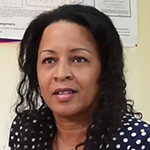 |
Aster Gebrekirstos
World Agroforestry Centre (ICRAF) Dr. Aster Gebrekirstos is a scientist at the World Agroforestry Centre (ICRAF) and a Visiting Professor at Dresden University, Germany. She has over 15 years of experience in research, tertiary level teaching and consulting. Her research focuses on tropical forest ecology and management, which includes dendrochronology (to reconstruct past climates and the effects and consequences of global climate change on hydrology, biodiversity and livelihoods), plant water relations, agroforestry and the restoration of degraded landscapes. In recognition of her research, Dr. Gebrekirstos has received various distinctions, notably the prestigious African Climate Award for excellence in research in climate change adaptation and mitigation in 2014. She also received the 2009 Special Award for Ground Breaking Science — African wide Young Professionals and Women in Science Competitions organized by the Technical Centre for Agricultural and Rural Cooperation (CTA), African Technology Policy Studies (ATPS), Alliance for a Green Revolution in Africa (AGRA), Forum for Agricultural Research in Africa (FARA), Regional Universities Forum for Capacity Building in Agriculture (RUFORUM) and the New Partnership for Africa’s Development (NEPAD). She also serves on the Mountain Research Institute Science Leadership Council and is a member of many societies. [/expand] |
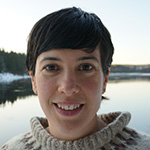 |
Aida Bargués Tobella
Swedish University of Agricultural Sciences Aida Bargués Tobella is a postdoctoral researcher at the Swedish University of Agricultural Sciences (SLU). She holds an MSc in Forestry and another in Soil Science from Universitat de Lleida (Spain) and SLU, respectively, and received her PhD in the field of Soil Science from the Department of Forest Ecology and Management at SLU. In her PhD project, entitled ‘The importance of tree cover for water resources in semiarid West Africa’, she investigated the conditions under which increased tree cover can lead to both higher carbon storage and better adaptive capacity to climate change, particularly through enhanced groundwater recharge. Aida’s main research interest is on the use of trees to restore degraded lands through soil rehabilitation, with a focus on dryland sub-Saharan Africa. She is particularly interested in how changes in tree cover and land use in drylands affect the water cycle, and how trees can improve water availability in such water-limited environments. [/expand] |
| Moderated by: | |
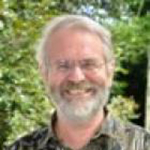 |
Meine van Noordwijk
Cochair of the IUFRO Global Forest Expert Panel on Forests and Water Meine van Noordwijk is currently a Distinguished Research Fellow at the World Agroforestry Centre (ICRAF), after retiring in mid-2017 from his Chief Scientist role. He also is Professor of Agroforestry at Wageningen University in the Netherlands. Trained as a biologist, his research has ranged from details of soil-plant interactions, via ecosystem service consequences of land-use change in tropical forest margins, to his current interest in the full hydrological cycle and coleadership of the Global Forest Expert Panel (GFEP) forest and water assessment. [/expand] |
| Part two: Implications for climate policy | |
Speakers: |
|
 |
Meine van Noordwijk
Cochair of the IUFRO Global Forest Expert Panel on Forests and Water
|
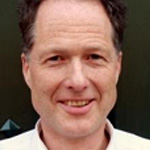 |
Holger Hoff
Potsdam Institute for Climate Impact Research and Stockholm Environment Institute (SEI) Dr. Holger Hoff was trained as environmental scientist in Germany and the US. He is a senior scientist at the Stockholm Environment Institute (SEI) in Sweden and at the Potsdam Institute for Climate Impact Research (PIK) in Germany. His main research interests are climate adaptation and mitigation, integrated natural resource management and governance (“the nexus”), planetary boundaries and their operationalization, earth system dynamics and teleconnections in the earth system, sustainable production and consumption and spillover effects, integrated Sustainable Development Goal implementation and sustainability transitions. He has worked for various universities, research institutes, think tanks and advisory bodies in Germany, Sweden, the Netherlands and for international programs. His previous positions include director of the Global Water System Program, director of the International Geosphere-Biosphere Program (BAHC project), senior scientist for the International Dialogue on Water and Climate, research analyst for the German Advisory Council on Global Change (WBGU), coordinator of the GLOWA Jordan water and climate project, and researcher at the Forest Research Institute in New Zealand. He is also a scientific advisor to German and Swedish Development Cooperation and a Water Evaluation and Planning (WEAP) scenario planning and decision tool expert. [/expand] |
 |
Daniel Murdiyarso Principal scientist, Center for International Forestry Research (CIFOR) [expand title=”Biography” tag=”DM”]Daniel Murdiyarso currently holds a position as principal scientist at the Center for International Forestry Research (CIFOR). He received his first degree in Forestry from Bogor Agricultural University (IPB), Indonesia. His PhD was obtained in 1985 from the Department of Meteorology, University of Reading, UK. He is a Professor at the Department of Geophysics and Meteorology, IPB. His research works are related to land-use change and biogeochemical cycles, climate change mitigation and adaptation. He has published a large number of articles in peer-reviewed journals and book chapters on these areas.Dr. Murdiyarso has served in a number of Nobel Prize winning IPCC as convening lead author of reports, including the IPCC Third Assessment Report; the IPCC Special Report on Land-use, Land-use Change and Forestry; and the IPCC 2013 Supplement to the 2006 IPCC Guidelines on GHG Inventory: Wetlands. He has also served as review editor of the IPCC Fourth Assessment Report. From 2000 he served the government of Indonesia as Deputy Minister of Environment for two years, during which he was also the national focal point of the UNFCCC and CBD. Since 2002 Professor Murdiyarso has been a member of the Indonesian Academy of Sciences. [/expand] |
| Moderated by: | |
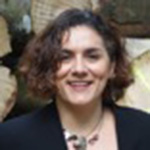 |
Paola Ovando Pol
Eawag (Swiss Federal Institute of Aquatic Science and Technology), and member of the IUFRO Global Forest Expert Panel on Forests and Water
|
| Part three: Who can do what? | |
|
Open forum with audience interaction
|
|
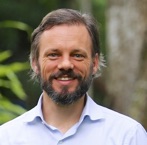 |
Vincent Gitz
Center for International Forestry Research (CIFOR) and Director of the CGIAR Research Program on Forests, Trees and Agroforestry (FTA) Vincent Gitz is the Director of the CGIAR Research Program on Forests, Trees and Agroforestry (FTA). An engineer of Ecole Polytechnique (1994) in France, he holds a PhD from AgroParisTech on land use and global climate policies, which was awarded the Le Monde prize for academic research. He has a background in earth sciences and natural resource and development economics. He has previously worked in research for CIRED and CIRAD, in policy-making, and at the interface between the two. He served as advisor for sustainable development and research to the French agriculture and fisheries minister, Michel Barnier, from 2007-2009, and in 2016 was assistant director for food policy at the French Ministry of Agriculture, Agrifood and Forests. From 2010-2015, he was coordinator of the High Level Panel of Experts on Food Security and Nutrition (HLPE), the science-policy interface of the United Nation’s Committee on World Food Security (CFS). He has published in several fields related to sustainable development issues, from energy and development economics to earth and environmental sciences to nutrition. [/expand] |
| Wrap-up by: | |
 |
Vincent Gitz
Center for International Forestry Research (CIFOR) and Director of the CGIAR Research Program on Forests, Trees and Agroforestry (FTA) |
